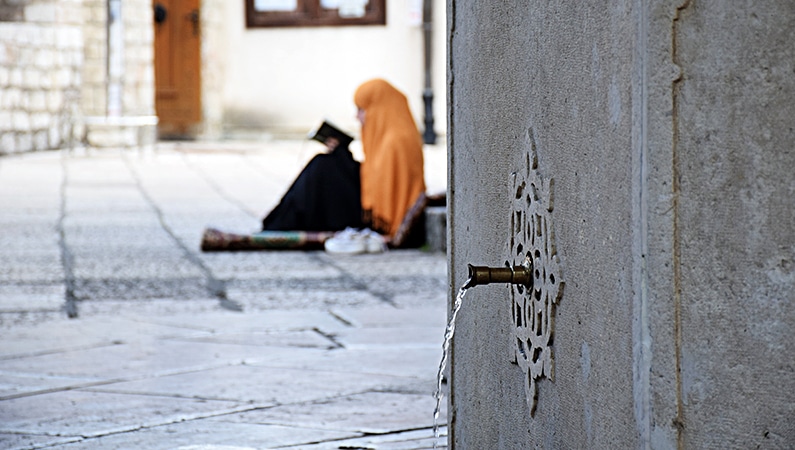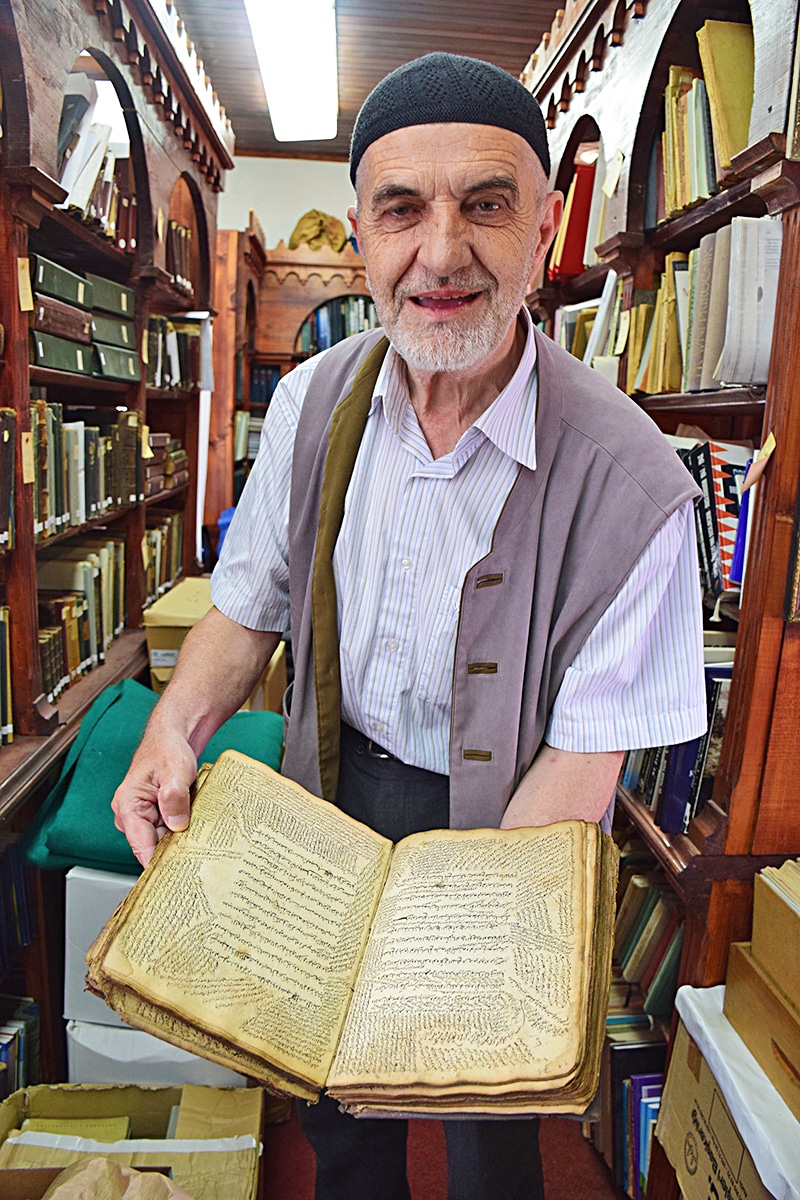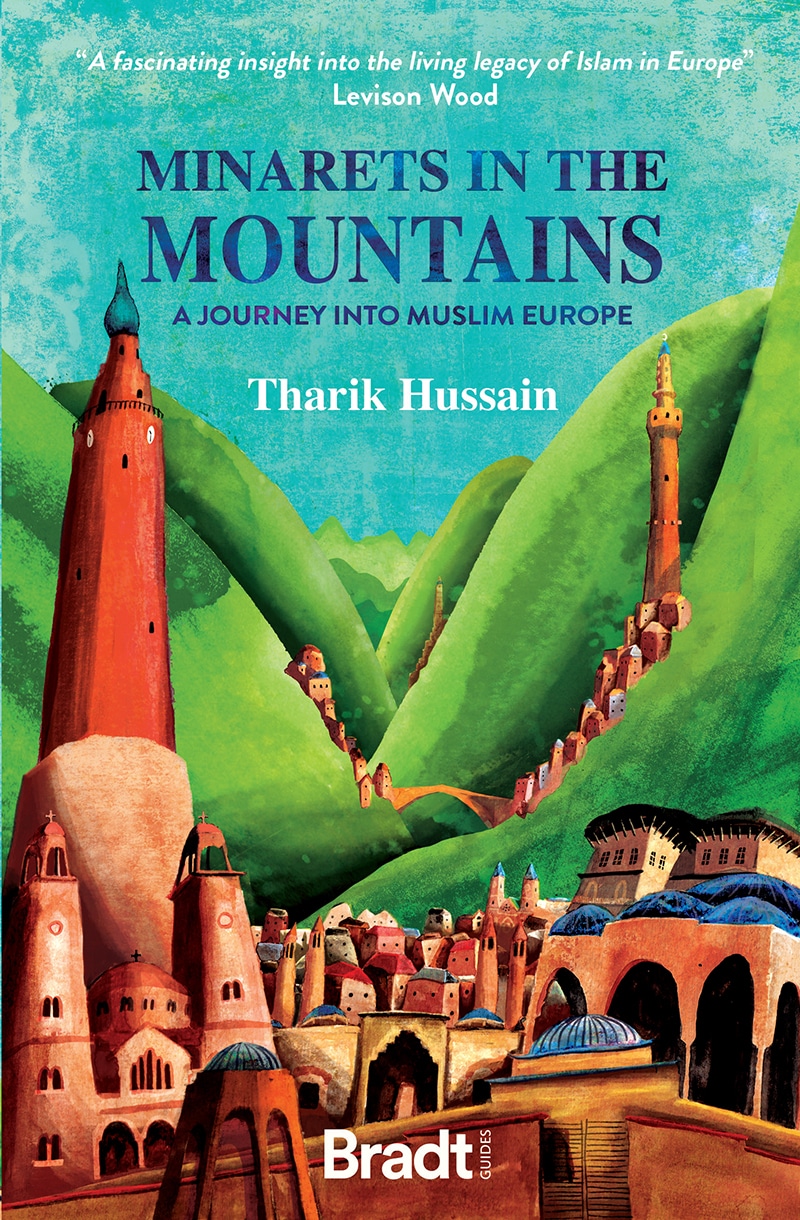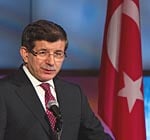
Über Albanien herrscht massenhaft Unwissenheit im Westen. Und es gibt kaum echte Bemühungen, das zu ändern. (iz). Als ich im Kindesalter nach Griechenland flog, schaute ich über der albanischen Küste […]
unabhängig seit 1995

Über Albanien herrscht massenhaft Unwissenheit im Westen. Und es gibt kaum echte Bemühungen, das zu ändern. (iz). Als ich im Kindesalter nach Griechenland flog, schaute ich über der albanischen Küste […]
IZ+
Mit unserem digitalen Abonnement IZ+ (Monatsabo) können Sie weitere Hintergrundbeiträge, Analysen und Interviews abrufen. Gegen einen Monatsbeitrag von 3,50 € können Sie das erweiterte Angebot der Islamischen Zeitung sowie das ständig wachsende Archiv nutzen.
Abonnenten der IZ-Print sparen beim IZ+ Abo 50%.
Wenn Sie bereits IZ+ Abonnent sind können Sie sich hier einloggen.
* Einfach, schnell und sicher bezahlen per Paypal, Kredit-Karte, Lastschrift oder Banküberweisung. Das IZ+ Abo verlängert sich automatisch um einen Monat, wenn es nicht vorher gekündigt wurde. Sie können ihr bestehendes Abo jederzeit auf der Mein Konto-Seite kündigen.

„Eine eingehende Untersuchung lieferte uns unwiderlegbare Beweise dafür, dass die Cyber-Aggression gegen unser Land von der Islamischen Republik Iran orchestriert und gesponsert wurde, die vier Gruppen für den Angriff auf Albanien engagiert hat“, sagte Rama.
Tirana (dpa). Das Nato-Land Albanien bricht mit sofortiger Wirkung die diplomatischen Beziehungen zum Iran ab. Das kündigte Albaniens Ministerpräsident Edi Rama am Mittwoch an. Er begründete dies damit, dass es „unwiderlegbare Beweise“ dafür gebe, dass der Iran hinter massiven Cyber-Angriffen vom 15. Juli stecke, die darauf abgezielt hätten, staatliche Institutionen Albaniens lahmzulegen.
Das gesamte Botschaftspersonal des Irans müssse Albanien binnen 24 Stunden verlassen, sagte Rama weiter. Man habe auch die Nato-Partner und andere befreundete Staaten darüber informiert.
„Eine eingehende Untersuchung lieferte uns unwiderlegbare Beweise dafür, dass die Cyber-Aggression gegen unser Land von der Islamischen Republik Iran orchestriert und gesponsert wurde, die vier Gruppen für den Angriff auf Albanien engagiert hat“, sagte Rama. Eine dieser Gruppen sei berüchtigt und habe an früheren Cyber-Angriffen auf Israel, Saudi-Arabien, Jordanien, die Vereinigten Emirate, Kuwait und Zypern mitgewirkt.
In Albanien habe der Angriff sein Ziel nicht erreicht, sagte Rama. „Im Vergleich zu den Angriffszielen der Angreifer sind die Schäden als gering anzusehen. Alle Systeme wurden wiederhergestellt und nichts war unwiederbringlich verloren.“
Teheran reagierte mit Unverständnis. „Das war eine unüberlegte und überhastete Entscheidung auf der Basis haltloser Unterstellungen“, erklärte das Außenministerium am Abend. Der Iran selbst sei Opfer von Cyber-Angriffen und verurteile daher diese Form von Sabotageakten. Die Beziehungen beider Länder hatten sich verschlechtert, als Albanien 2016 Zufluchtsort für eine größere Zahl von Mitgliedern der militanten iranischen Oppositionsbewegung Volksmudschahedin wurde.

(iz). There are not many books about Islam and Muslims in Europe that have a transforming effect just by reading them – not to mention enthusiasm. The English travel writer and photographer Tharik Hussain has succeeded in writing such a book with “Minarets in the Mountains.”
In the past, the Briton has worked for the BBC, among others, and published several travel guides on countries such as Saudi Arabia, Bahrain, or Thailand. We talked to him about his new book, the Western Balkans, and European Muslims.
Islamische Zeitung: Dear Tharik Hussain, your latest book “Minarets in the Mountains” has recently been published in English and is going to have a German translation too. As it is so encompassing, is it only a traveling book or equally a history and a description of the present?
Tharik Hussain: It falls into the genre of travel literature, and I believe good travel literature, written by the likes of William Dalrymple, Tim Mackintosh-Smith and others that have influenced me, should do all of this; offer history, an insight of the present and a good, engaging narrative.
Islamische Zeitung: Since you were not just moving through a physical space but also a temporal, how did you experience this duality of space and time in the places visited?
Tharik Hussain: It was fascinating. I have always loved books written in this way, like the one by Tim Mackintosh-Smith when he follows in the footsteps of Ibn Battuta. Tim put it best when he said to me, we are like ‘time travellers’, and that’s how it can sometimes feel to have that historic window and compare it to what is in front of you.
Islamische Zeitung: You let yourself being guided by the memories of the famous Ottoman traveler Evliya Çelebi. How import was he as an interpretation and as a helper to find your way around in the Western Balkans?
Tharik Hussain: As I state in the book, Evliya’s observations are important because he was writing at a time when many of the places I visited were the most ‘Muslim’ they have ever been, so it allowed me to see just how much of that remains, and then ask questions about why it might have changed. Equally important was the fact that as a Muslim, Evliya was looking at this history and heritage as his own, like I wanted to. This was something previous writers in English about this region didn’t always do because they were not Muslim.

Islamische Zeitung: Dear Tharik, one remarkable aspect of your travel book is that you are not just featuring physical places and their history. You’re always meeting people and engaging with them. What are your impressions of the Muslims you met?
Tharik Hussain: Like people across the globe, they were fascinating. They are very proud of their roots and their identities. These are people with ancient histories who are very secure in who they are. But of course, the most engaging thing was to hear the individual stories of remarkable people like those that saved Jews in the holocaust or fought in the Siege of Sarajevo – all were truly inspiring Muslims of Europe I had not known about before this journey.
Islamische Zeitung: Do you think mainly migrant Muslims in Western Europe pay enough head to this aspect? Should the Muslims in Southeastern Europe receive more representation by the wider Muslim community in the west?
Tharik Hussain: Absolutely. The Muslims of SEE are almost entirely overlooked and not even viewed in the popular domain as part of the global Muslim community. Those living in the western half – many the result of postcolonial migration or conversion to Islam could learn a lot about belonging and identity from a community that has been European and Muslim for almost six centuries.
Islamische Zeitung: What fascinates you most in the Western Balkans?
Tharik Hussain: The way the everyday people there, seem to have always harmoniously bridged the different religious and cultural influences that have come together in this region, from sharing sites of religious significance like the Islamic-Christian tombs of Bulgaria that I write about, through to the pluralist heritage of places like Sarajevo. Yes, the powers that be were warring at various intervals, but the people; how they got along (in the main), inter married, respected each other’s differences – that was fascinating.
Islamische Zeitung: If you had to pick one place during your journey what would it be?
Tharik Hussain: That would be tough, but the most surprising was probably Skopje as I knew very little about it before I arrived, and to then be literally stumbling over stunning Islamic monuments blew me away – but then I could say that about every corner of Muslim Europe!


Jenseits von Folklore und strategischen Absichten in der Außenpolitik hat die osmanische Hinterlassenschaft bisher keine Auswirkungen für die türkische Innenpolitik. Die Folge ist das starre Festhalten am Nationalismus. (Today’s Zaman). […]
IZ+
Mit unserem digitalen Abonnement IZ+ (Monatsabo) können Sie weitere Hintergrundbeiträge, Analysen und Interviews abrufen. Gegen einen Monatsbeitrag von 3,50 € können Sie das erweiterte Angebot der Islamischen Zeitung sowie das ständig wachsende Archiv nutzen.
Abonnenten der IZ-Print sparen beim IZ+ Abo 50%.
Wenn Sie bereits IZ+ Abonnent sind können Sie sich hier einloggen.
* Einfach, schnell und sicher bezahlen per Paypal, Kredit-Karte, Lastschrift oder Banküberweisung. Das IZ+ Abo verlängert sich automatisch um einen Monat, wenn es nicht vorher gekündigt wurde. Sie können ihr bestehendes Abo jederzeit auf der Mein Konto-Seite kündigen.
| Cookie | Dauer | Beschreibung |
|---|---|---|
| __stripe_mid | 1 year | This cookie is set by Stripe payment gateway. This cookie is used to enable payment on the website without storing any patment information on a server. |
| __stripe_sid | 30 minutes | This cookie is set by Stripe payment gateway. This cookie is used to enable payment on the website without storing any patment information on a server. |
| cookielawinfo-checkbox-advertisement | 1 year | Set by the GDPR Cookie Consent plugin, this cookie is used to record the user consent for the cookies in the "Advertisement" category . |
| cookielawinfo-checkbox-analytics | 1 year | Set by the GDPR Cookie Consent plugin, this cookie is used to record the user consent for the cookies in the "Analytics" category . |
| cookielawinfo-checkbox-functional | 1 year | The cookie is set by GDPR cookie consent to record the user consent for the cookies in the category "Functional". |
| cookielawinfo-checkbox-necessary | 1 year | Set by the GDPR Cookie Consent plugin, this cookie is used to record the user consent for the cookies in the "Necessary" category . |
| cookielawinfo-checkbox-non-necessary | 1 year | Set by the GDPR Cookie Consent plugin, this cookie is used to record the user consent for the cookies in the "Non-necessary" category . |
| cookielawinfo-checkbox-others | 1 year | Set by the GDPR Cookie Consent plugin, this cookie is used to store the user consent for cookies in the category "Others". |
| cookielawinfo-checkbox-performance | 1 year | Set by the GDPR Cookie Consent plugin, this cookie is used to store the user consent for cookies in the category "Performance". |
| PHPSESSID | session | This cookie is native to PHP applications. The cookie is used to store and identify a users' unique session ID for the purpose of managing user session on the website. The cookie is a session cookies and is deleted when all the browser windows are closed. |
| Cookie | Dauer | Beschreibung |
|---|---|---|
| _ga | 2 years | The _ga cookie, installed by Google Analytics, calculates visitor, session and campaign data and also keeps track of site usage for the site's analytics report. The cookie stores information anonymously and assigns a randomly generated number to recognize unique visitors. |
| _ga_1SGM7QRQ34 | 2 years | This cookie is installed by Google Analytics. |
| CONSENT | 2 years | YouTube sets this cookie via embedded youtube-videos and registers anonymous statistical data. |
| Cookie | Dauer | Beschreibung |
|---|---|---|
| NID | 6 months | NID cookie, set by Google, is used for advertising purposes; to limit the number of times the user sees an ad, to mute unwanted ads, and to measure the effectiveness of ads. |
| yt-remote-connected-devices | never | YouTube sets this cookie to store the video preferences of the user using embedded YouTube video. |
| yt-remote-device-id | never | YouTube sets this cookie to store the video preferences of the user using embedded YouTube video. |
| Cookie | Dauer | Beschreibung |
|---|---|---|
| m | 2 years | No description available. |